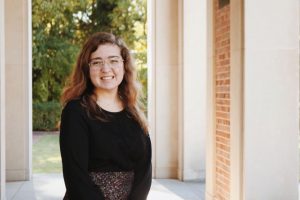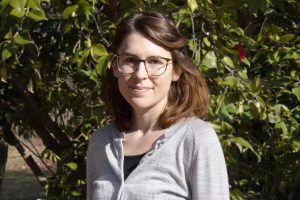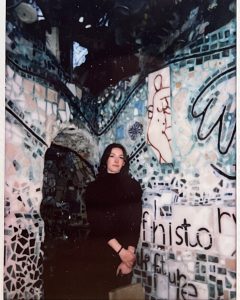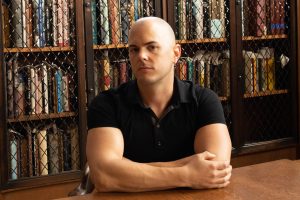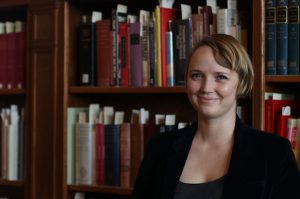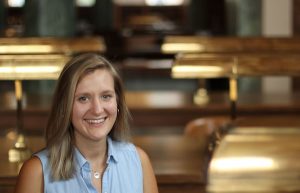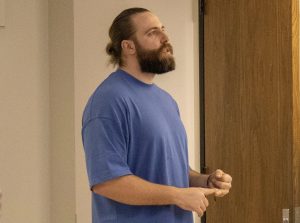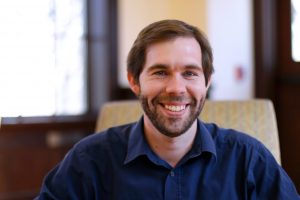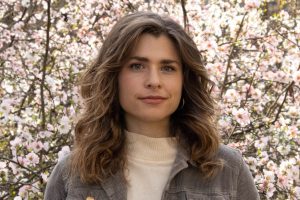Degrees
2016, MA English, University of Missouri at Columbia
2014, BA English (French minor), Louisiana State University at Baton Rouge
Bio
I am a PhD candidate studying American literature of the long nineteenth century. My research interests largely revolve around animal studies and how literature has shaped historical developments in human-animal relations. At UNC, I have taught classes on poetry, animals in popular literary genres, science writing, and composition, and I have also gained extensive experience working as a graduate writing coach at the UNC Writing Center. As a scholar and a teacher, I am driven by a deep interest in interdisciplinary thinking and how written words actively shape our lived experiences in the world.
In my dissertation project, “‘If You Are Always Kind’: Animals and Becoming Human(e) in Nineteenth-Century American Children’s Literature,” I demonstrate how materials written for and by children were historically significant in the development and consolidation of “humane” values that continue to shape our present moment. My project foregrounds how these materials racialized and gendered different animal species to generate a “humane” discourse that fueled the emergence of animal welfare initiatives. While I focus on these developments in the United States, I also consider the transnational and transatlantic dimensions of the animal welfare movement. As a scholar, much of my methodology is grounded in working with archival materials, and I have held research fellowships from the Massachusetts Historical Society and the American Antiquarian Society in the course of working on this project. In considering many materials that have been forgotten today but which circulated widely in the nineteenth century, I shed new light on works that—like “Mary’s Lamb” (1830), which I quote in the first part of my title—continue to shape human behavior towards animals from a young age.
In my future work beyond this current project, I’m interested in how literary representations of animals influenced the development of veterinary science as a distinct medical field from the early 1700s up until 1879, when the first public college of veterinary medicine was founded in the United States. I am also more broadly interested in the history of public education in the United States.
Publications:
- “Black Cats and White Women: Animal Autobiography and the Shaping of Race, Species, and Gender,” forthcoming in American Literature, vol. 96, no. 3, September 2024.
- “‘Our School House is the Universe’: Henry David Thoreau as Radical Educator,” forthcoming chapter in The Oxford Handbook of Henry David Thoreau, 2025.
- “A Posthumous Life: Thoreau and the Possibilities of Posthuman Biography,” The Concord Saunterer: A Journal of Thoreau Studies, vol. 27, 2019, pp. 127-142.
- Review of Antoine Traisnel’s Capture: American Pursuits and the Making of a New Animal Condition (University of Minnesota Press, 2020) for Configurations: A Journal of Literature, Science, and Technology, vol. 30, no. 1, Winter 2022, pp. 107-110.
- Review of Laura Dassow Walls’s Henry David Thoreau: A Life for the Emerson Society Papers, vol. 29, no. 2, Fall 2018, p. 14.
- Online Review of LeAnne Howe’s Savage Conversations for The Carolina Quarterly, March 2019.
- Online Review of Caleb Johnson’s Treeborne: A Novel for The Carolina Quarterly, September 2018.
- Online Review of Filip Springer’s History of a Disappearance: The Story of a Forgotten Polish Town for The Carolina Quarterly, April 2018.
Teaching Awards
- Tanner Award for Excellence in Undergraduate Teaching by Graduate Teaching Assistants, UNC Office of the Provost, 2024
- Krista Turner Award for Excellence in Student Support for Spring 2022, UNC Dept. of English & Comparative Literature
- Student Undergraduate Teaching Award, UNC Chancellor’s Awards, 2022
Awards
- Off-Campus Dissertation Research Fellowship, Spring 2024, The Graduate School, UNC
- Lapides Fellowship in Pre-1865 Juvenile Literature and Ephemera, 2023-2024, American Antiquarian Society, Worcester MA
- Andrew Oliver Research Fellowship, 2022-2023, Massachusetts Historical Society, Boston MA
- Dissertation Research Fellowship, Summer 2022, UNC Dept. of English & Comparative Literature
- Robert Bain Award for Excellence Achieved by a Second-Year Student in Pre-1900 American Literature, 2018, UNC
